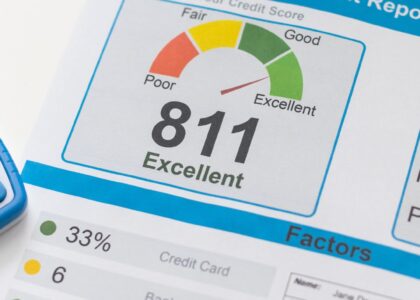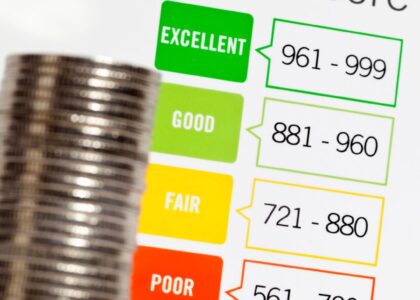Your credit score is more than just a number; it’s a financial passport that can open doors to opportunities or shut them firmly in your face. A good credit score can make your dreams a reality, whether it’s buying your dream home, starting a business, or securing a low-interest rate on a loan. Conversely, a poor credit score can be a significant roadblock to your financial aspirations.
In this comprehensive guide, we will explore the art of boosting your credit score quickly and efficiently with the help of Credit Repair Bay Area, an established credit restoration agency with over 19 years of experience. We understand that your financial success hinges on your credit history and your ability to manage it effectively.
Why a Good Credit Score Matters
Before we delve into the strategies and techniques to improve your credit score, let’s take a moment to understand why a good credit score matters.
A credit score is like a financial report card that lenders, landlords, and even potential employers use to evaluate your financial responsibility. It’s a three-digit number that reflects your creditworthiness and is primarily based on the information found in your credit reports.
A strong credit score can:
- Open doors to lower interest rates on loans and credit cards, saving you money in the long run.
- Help you qualify for mortgages and loans with more favorable terms, making homeownership and financial investments more accessible.
- Secure better insurance rates, potentially reducing your monthly expenses.
- Enhance your ability to rent an apartment or qualify for a favorable lease agreement.
- Provide a competitive edge in job applications, especially in positions related to finance or fiduciary responsibilities.
In essence, a good credit score is the cornerstone of financial stability and the key to unlocking countless opportunities. However, if your credit score is currently less than stellar, you might be wondering how to improve it quickly. That’s where Credit Repair Bay Area comes into play.
Throughout this article, we will not only explore the importance of a strong credit history but also delve into actionable steps you can take to boost your credit score rapidly. We’ll address common questions like, “How can I raise my credit score in 30 days?” and “How can I boost my credit immediately?” as we guide you on your journey to better credit.
So, let’s roll up our sleeves and embark on the path to financial empowerment. Together, we’ll discover the strategies, techniques, and expert assistance you need to elevate your credit score and secure the financial future you deserve.
Why a Good Credit Score Matters
Now that we understand the significance of a good credit score, let’s delve deeper into why it matters so much in your financial life.
**1. Access to Better Loan Rates: One of the most immediate benefits of a strong credit score is the ability to secure loans at lower interest rates. Lenders view borrowers with higher credit scores as less risky, and as a result, they offer more favorable terms. Whether you’re looking for an auto loan, a mortgage, or a personal loan, a good credit score can save you a substantial amount of money in interest over the life of the loan.
**2. Increased Financial Opportunities: A high credit score opens doors to various financial opportunities. It can help you qualify for credit cards with better rewards and perks, making your everyday spending more rewarding. Additionally, you’re more likely to be approved for credit limit increases, giving you more financial flexibility.
**3. Homeownership: For many, owning a home is a significant life goal. A good credit score is crucial for obtaining a mortgage with a low down payment and a competitive interest rate. It can mean the difference between affording your dream home and settling for less.
**4. Insurance Savings: Did you know that your credit score can also affect your insurance premiums? Many insurance companies use credit-based insurance scores to determine your risk level as a policyholder. A higher credit score may result in lower insurance premiums for auto, home, and even life insurance policies.
**5. Renting an Apartment: Landlords often review credit reports to evaluate prospective tenants. A solid credit history can improve your chances of securing a rental property, especially in competitive markets. It can also lead to more favorable lease terms.
**6. Job Opportunities: In certain industries, particularly those related to finance or positions of financial responsibility, employers may review credit reports as part of their hiring process. A positive credit history can give you a competitive edge in job applications.
In essence, your credit score is a reflection of your financial trustworthiness. It can significantly impact your access to various financial products, the terms you’re offered, and even your lifestyle choices.
As we proceed through this guide, we’ll address the question: “How can I raise my credit score in 30 days?” We’ll explore practical steps you can take to boost your credit score quickly while keeping a keen eye on the long-term benefits of maintaining a positive credit history.
Now that we’ve established the importance of a good credit score, let’s move on to understanding how credit scores are calculated and how you can use this knowledge to your advantage.
Understanding Your Current Credit Score
To effectively boost your credit score, it’s essential to have a clear understanding of how credit scores work and what factors contribute to your current score. Your credit score is not a mysterious number; it’s a reflection of your financial history and behavior. Here’s a closer look at how it’s calculated:
1. Payment History (35% of Your Score)
Your payment history is the most influential factor in your credit score calculation. It accounts for a significant portion of your score—35%. Lenders want to see that you have a history of making payments on time. Late payments, collections, and charge-offs can have a detrimental impact on this aspect of your score.
2. Credit Utilization (30% of Your Score)
Credit utilization is the ratio of your credit card balances to your credit limits. It makes up 30% of your credit score. Lenders prefer to see low credit utilization, ideally below 30%. High balances relative to your credit limits can signal financial strain and negatively affect your score.
3. Length of Credit History (15% of Your Score)
The length of your credit history accounts for 15% of your credit score. Lenders like to see a long and positive credit history, as it demonstrates your ability to manage credit over time. Closing older accounts can shorten your credit history and impact your score.
4. Types of Credit (10% of Your Score)
The diversity of credit accounts you have also plays a role, making up 10% of your credit score. Lenders like to see a mix of credit types, such as credit cards, installment loans, and retail accounts. A healthy mix can positively impact your score.
5. Recent Credit Applications (10% of Your Score)
The number of recent credit applications and inquiries can affect your credit score. It accounts for the remaining 10% of your score. Frequent credit applications can be seen as a sign of financial instability, so it’s essential to be cautious about applying for new credit too often.
Checking Your Credit Reports
Now that you have a better understanding of how credit scores are calculated, it’s vital to check your credit reports regularly. Your credit reports are the source of the information used to calculate your score. You are entitled to one free credit report from each of the three major credit bureaus (Equifax, Experian, and TransUnion) every 12 months. Reviewing your reports can help you identify errors, inaccuracies, or negative information that may be dragging down your score.
Why Monitoring Your Credit Matters
Monitoring your credit is not just about checking your score; it’s about safeguarding your financial health. Regularly reviewing your credit reports allows you to:
- Detect and dispute inaccuracies: If you find errors on your credit reports, you can dispute them to have them corrected, potentially boosting your score.
- Prevent identity theft: Monitoring your credit reports can help you spot unauthorized accounts or activities, a sign of identity theft.
- Track your progress: As you work to improve your credit, monitoring allows you to track your progress and see how your actions impact your score.
Common Credit Score Issues
Understanding how credit scores are calculated is crucial, but it’s equally important to recognize the common issues that can negatively impact your credit score. Even minor missteps can have significant consequences for your financial well-being. Let’s explore some of the most common credit score issues:
1. Late Payments
Late payments on credit accounts, loans, or bills can be a major red flag for lenders. Payment history, as previously mentioned, is the most influential factor in your credit score calculation. A single missed payment can lower your score, and multiple late payments can have a substantial negative impact.
2. High Credit Card Balances
Carrying high balances on your credit cards relative to your credit limits can harm your credit score. This is known as high credit utilization and can indicate financial stress. It’s essential to keep your credit card balances low to maintain a healthy credit score.
3. Errors on Credit Reports
Credit reports can contain errors or inaccuracies that negatively affect your score. These errors may include accounts that don’t belong to you, incorrect payment statuses, or inaccurate personal information. Review your credit reports regularly to identify and dispute such errors.
4. Defaulting on Loans
Defaulting on a loan, such as a student loan or a personal loan, can have severe consequences for your credit score. Defaulting occurs when you fail to meet the agreed-upon terms of the loan, often by missing several payments. It can lead to collections and significant damage to your credit.
5. Foreclosure or Bankruptcy
Major financial events like foreclosure or bankruptcy can have a long-lasting negative impact on your credit score. These events are severe and can take years to recover from, but it’s not impossible to rebuild your credit afterward.
6. Frequent Credit Applications
Applying for credit too frequently can lead to multiple hard inquiries on your credit report. Each hard inquiry can slightly lower your credit score. It’s essential to be cautious when applying for new credit and only do so when necessary.
7. Lack of Credit History
Having little or no credit history can also be a challenge. Lenders may hesitate to extend credit to individuals with insufficient credit history, making it essential to establish and build credit over time.
8. Co-Signing for Someone Else’s Loan
Co-signing for someone else’s loan means you’re equally responsible for the debt. If the primary borrower misses payments or defaults, it can negatively affect your credit score as well.
Now that you’re aware of the common pitfalls that can harm your credit score, it’s time to take proactive steps to address these issues and improve your credit profile. In the following sections, we’ll explore the strategies and techniques you can use to boost your credit score quickly, and we’ll address the question: “How can I raise my credit score in 30 days?”.
By understanding both the challenges and the solutions, you’ll be better equipped to take control of your financial future and achieve a healthier credit score.
THE CREDIT REPAIR BAY AREA APPROACH
Now that we’ve explored the factors that influence your credit score and the common credit score issues to be aware of, it’s time to introduce you to the approach taken by Credit Repair Bay Area. With over 19 years of experience in the field of credit repair, they have a proven track record of helping individuals and businesses enhance their credit histories and scores.
A. 19 Years of Experience in Credit Repair
Experience matters in the world of credit repair, and Credit Repair Bay Area brings a wealth of it to the table. Here’s why their 19 years of experience is a significant advantage:
- In-Depth Knowledge: Over nearly two decades, they have gained comprehensive knowledge of the credit reporting system, credit bureaus, and the most effective strategies for credit improvement.
- Established Relationships: Their longstanding presence in the industry has allowed them to establish strong relationships with credit reporting agencies, creditors, and lenders, enabling them to advocate on your behalf effectively.
- Proven Success: With a long history of helping clients, Credit Repair Bay Area has a track record of success stories, demonstrating their ability to deliver results.
If you’re looking to improve your credit score, having an experienced partner like Credit Repair Bay Area on your side can make a significant difference.
B. Customer-First Focus
At Credit Repair Bay Area, their primary focus is on their customers. They understand that each individual’s credit situation is unique, and they tailor their solutions to address specific challenges within your credit report. Here’s why their customer-first approach matters:
- Personalized Solutions: They take the time to understand your unique financial situation and create a customized plan to address your specific credit issues.
- Education: They believe that an informed client is an empowered client. They educate you about credit and financial management, empowering you to make better financial decisions in the future.
- Communication: Open and transparent communication is key. They keep you informed about the progress of your credit repair and work closely with you to achieve your goals.
C. Cutting-Edge Technology
In today’s digital age, technology plays a crucial role in improving credit scores efficiently. Credit Repair Bay Area leverages cutting-edge technology, processes, and programs to ensure that you achieve the best possible results. Here’s how technology benefits your credit repair journey:
- Efficiency: Technology allows for a streamlined and efficient credit repair process, minimizing delays and maximizing results.
- Accuracy: Advanced tools help identify inaccuracies and errors in your credit reports, allowing for swift corrections.
- Monitoring: Technology enables continuous monitoring of your credit history, ensuring that any negative changes are promptly addressed.
With their combination of extensive experience, customer-centric approach, and advanced technology, Credit Repair Bay Area is well-equipped to assist you in your journey toward a better credit score.
In your journey to boost your credit score rapidly, remember that patience and persistence are your allies. It’s not just about the destination, but the steps you take along the way. By understanding the factors that influence your credit score, taking proactive steps, and, if needed, seeking the expertise of Credit Repair Bay Area, you can achieve the financial peace of mind you deserve.
Your credit score is a reflection of your financial responsibility, and with the right strategies and support, you can enhance it. As you embark on this path to better credit, keep in mind that it’s not just about the score itself but the financial opportunities and security it can bring into your life. Take action today, review your credit reports, make on-time payments, and watch your credit score rise. Your financial future is in your hands, and with determination, it can be a bright and prosperous one.
If you’re ready to start your journey toward a better credit score, don’t hesitate to reach out to Credit Repair Bay Area. With their expertise and your commitment, the path to improved credit and financial success is within reach.




